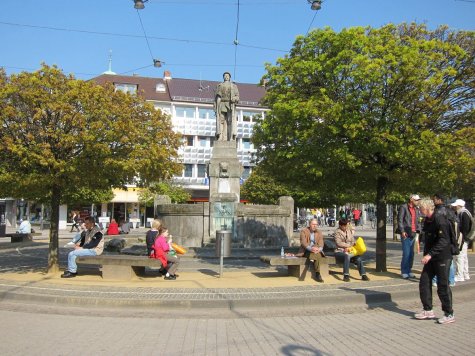This began an unexpected adventure of an extended European tour. On the first night, the airline sent us on a long taxi ride to Seeheim. The destination turned out to be the Lufthansa Training and Conference Centre, a wonderful facility that tourists are unlikely to see.
The coupons for dinner gave us the breadth of choice of continental cuisine from experienced chefs. After the meal, Jennifer and I walked around as much of the building complex as we could find. I read that there are bowling alleys at the facility, but we never found them.
We might have liked to extend our stay at this facility, but we were told the conference centre was booked full for that evening. We took a shuttle back to Frankfurt airport.
At the airport, the airline then sent us to Darmstadt. This town is the home of the Technische Universität Darmstadt, a research institution with strong ties to German industry. From just west of the city centre, we walked to Ludwigsplatz.
The city centre, such as Ernst Ludwig Strasse, has only pedestrian traffic going through it.
The Luisenplatz is centered on a fountain, and ringed by buildings with sidewalk cafes. Continue reading “2010/04/15-23 Seeheim, Darmstadt, Rhine River, Brussels“







